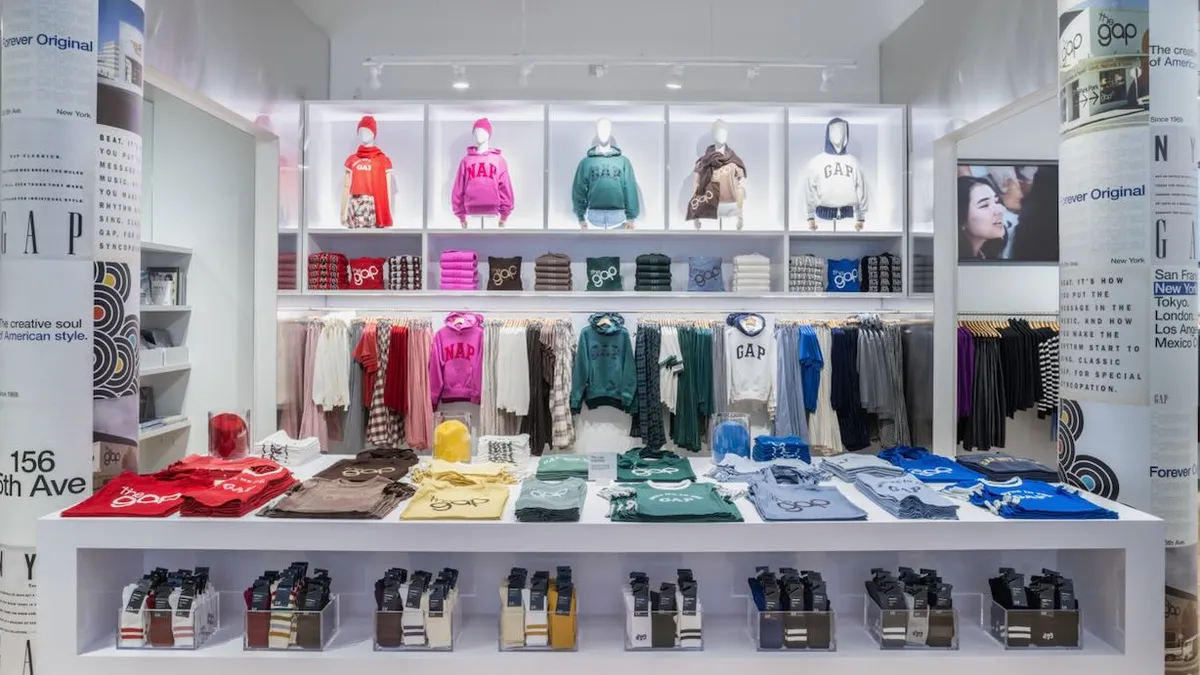Dive Brief:
- Gap Inc. is entering a multiyear partnership with Google Cloud to accelerate its technology and AI strategy, the two companies announced Thursday.
- “This isn’t just about modernizing technology,” the retailer’s executive vice president and CTO Sven Gerjets said in a LinkedIn post announcing the partnership. “By rethinking workflows and making AI tools available across the company, we are enabling teams to focus on what truly matters: creativity, culture, and customer connection.”
- Gap plans to add a unified AI-powered platform to its tech stack as part of the partnership, opening up access to Google’s generative AI assistant Gemini, its Vertex AI platform to build and train AI models, and its BigQuery data warehouse. These tools are expected to speed up product development, improve customer experience via marketing optimization and support employees in decision-making and execution.
Dive Insight:
Retailers are refining their technology strategies amid a challenging year due to tariff impacts and consumer spending shifts.
Recognizable industry players, such as Walmart and Ralph Lauren, have increased their focus on AI as leaders try to mitigate headwinds and improve momentum.
Gap’s partnership with Google is the latest sign of retail leaders tying AI use to better business performance.
“AI is redefining what’s possible in retail, and we’re building our future technology roadmap around it,” Gerjets said in the Thursday release. “We believe this partnership gives us the expertise and speed to bring AI to life across our business, empowering teams, sparking creativity and delivering for customers faster and with greater personalization than ever.”
The retailer has steadily upped its focus on AI in recent years. In March, executives said they’re exploring AI use cases to boost revenue, which builds off of the digital-first strategy it set in 2024 and included a dedicated AI unit to drive innovation.
While the company is bullish on AI’s potential, leaders have emphasized a measured approach to adoption. Gerjets said in a LinkedIn post last month that not every shiny object belongs in the tech stack, referring to the onslaught of low-code and vibe coding tools.
“The signal-to-noise ratio is worse than ever,” Gerjets said, calling on leaders to be “ruthless” in their vetting process.
Retailers are wary of AI’s quality and reliability gaps, and customers have concerns as well. Around 4 in 5 consumers want businesses to deploy AI with robust guardrails, according to a Genesys survey published in August.
















